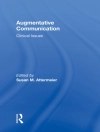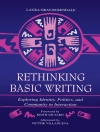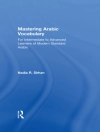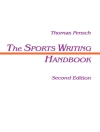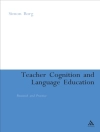Education has continued to grow in stature and significance as an academic discipline. In addition to world renowned research studies the growth of education has been seen in the methodology and methods underpinning its research. The BERA/SAGE Handbook of Educational Research provides a cutting edge account of the research and methodology that is creating new understandings for education research, policy and practice. Over two volumes, the handbook addresses educational research in six essential components: Section 1: Understanding Research Section 2: Planning Research Section 3: Approaches to Research Section 4: Acquiring Data Section 5: Analysing Data Section 6: Reporting, Disseminating and Evaluating Research Featuring contributions from more than 50 of the biggest names in the international field, The BERA/SAGE Handbook of Educational Research represents a very significant contribution to the development of education.
İçerik tablosu
Introduction – Editors
PART 01: UNDERSTANDING RESEARCH
01 Reasons for Education Research – Ian Menter
02 The role of theory in research – Mary Lou Rasmussen
03 The Ethics of Research – Hannah Farrimond
04 Shared principles of causal inference in qualitative and quantitative research – Sean Kelly
05 The Validity and Reliability of Research: A Realist Perspective – Joseph A. Maxwell
PART 02: PLANNING RESEARCH
06 Approaches to Reviewing Research in Education – Jill Denner, Erica Marsh & Shannon Campe
07 Purposes for Educational Research – Peter Tymms
08 Research Questions in Education Research: their neglect, role and development – Patrick White
09 An introduction to the importance of research design – Stephen Gorard
10 A positivist orientation: hypothesis testing and the ′scientific method′ – Roger Gomm
11 Interpretivism as a Theory of Knowledge – David Scott
12 Unpacking Pragmatism for Mixed Methods Research: The Philosophies of Peirce, James, Dewey, and Rorty – R. Burke Johnson, Anthony J. Onwuegbuzie, Cornelis de Waal, Tres Stefurak & David Hildebrand
13 Sampling Decisions in Educational Research: Criteria, Designs, Challenges – Kathleen Collins
PART 03: APPROACHES TO RESEARCH
14 Historical Research – Gary Mc Culloch
15 Using International Comparative Studies in Achievement in Educational Research – Larry E. Suter
16 Ethnography – Sara Delamont
17 Grounded Theory – Robert Thornberg
18 Case Study Research – Malcolm Tight
19 Surveys: longitudinal, cross-sectional and trend studies – Alice Sullivan & Lisa Calderwood
20 True Experimental designs – Carole J. Torgerson & David J. Torgerson
21 Lighting a Spark, Seeing the Light: Educational Action Research as Transformative Practice – Mary Brydon-Miller, Maricar Prudente & Socorro Aguja
22 Systematic review and Meta-Analysis – Sandy Oliver & Janice Tripney
23 Mixed Methods Approaches and their Application in Educational Research – Pamela Sammons & Susila Davis
24 Using Secondary Data Analysis for Educational Research – Pamela E. Davis-Kean & Justin Jager
25 Researching in digital environments – Rebecca Eynon
PART 04: ACQUIRING DATA
26 Access, Sites and Settings – Jerry West
27 Observation and recording classroom processes – Frank Hardman & Jan Hardman
28 Personal experience methods in practitioner research – Amanda Berry & Monica Taylor
29 Multimodality, Meaning and Data Analysis – Mark Nelson
30 Research Interviews – Amir Marvasti & Carrie Freie
31 Surveys and Questionnaires – Stacey Bielick
32 Measurement – Stephen G. Sireci & Joshua Marland
PART 05: ANALYSING DATA
33 Cataloguing and organizing data – Susan Jekielek
34 The Role of Theory in Quantitative Data Analysis – Terri D. Pigott
35 Descriptive statistics – Jeffrey T. Steedle
36 Inferential statistics – Paul E. Jose & Agnes Szabo
37 How should numeric data be analysed? – Stephen Gorard
38 Coding and Analyzing Qualitative Data – Barbara B. Kawulich
39 Conversation Analysis – Myrte Gosen & Tom Koole
40 Discourse analysis/Critical discourse analysis – Christoph A. Hafner
41 Content Analysis – James B. Schreiber & Lyndsie N. Ferrara
42 Confirmatory Factor Analysis – Betsy Mc Coach & Sarah D. Newton
43 Logistic Regression – Chao-Ying Joanne Peng
44 Multilevel modelling for educational data – Harvey Goldstein
45 Big Data and Educational Research – Roser Beneito-Montagut
PART 06: REPORTING, DISSEMINATING & EVALUATING RESEARCH
46 Generalizability – Guillermo Solano-Flores
47 Writing about research – Pat Thomson
48 Communicating Research Findings – Mark Rickinson
49 Social media and academic publishing – Inger Mewburn & Pat Thomson
50 Evaluation of and Accountability for Individual and Institutional Research on Education – Larry E. Suter
51 Using Research Findings – Chris Brown
Yazar hakkında
Emma Smith is Reader in Education at the University of Birmingham


